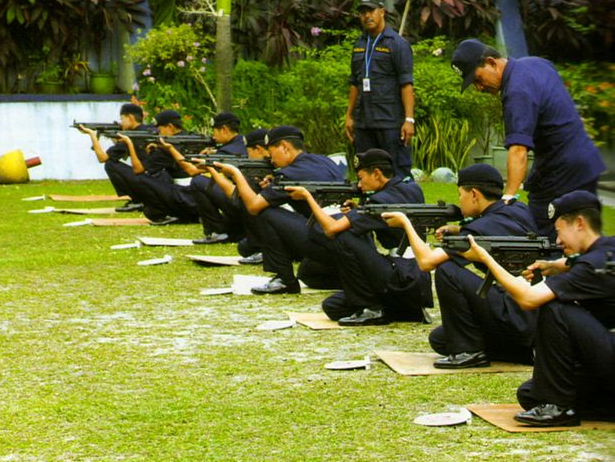The Malaysian government should withdraw the proposed counterterrorism law now with parliament and ensure future drafts protect fundamental rights. The Prevention of Terrorism Act 2015 would reintroduce indefinite detention without trial or judicial review, and violate due process rights in the name of preventing terrorism. Parliament is expected to vote on the bill before the session ends on April 9, 2015.
The draft law contains key elements of the notorious Internal Security Act (ISA), revoked in 2012, which was long used to detain government opponents, dissidents, and others in violation of their basic rights.
The draft counterterrorism law would allow terrorist suspects to be detained for 21 days based solely on the word of a police inspector, extendable for an additional 38 days. During this period, the suspect is not permitted representation by counsel except when his own formal statement is being taken and recorded by the inquiry officer.
The results of the initial inquiry are not presented to a court for a full and fair hearing, but rather to a proposed “Prevention of Terrorism Board” appointed by the Malaysian sultan. If the board is satisfied, based on the Inquiry Officer’s report, that there are “reasonable grounds” for believing that the suspect has engaged in the commission or support of terrorist acts, it may order that the suspect be detained without trial for up to two years. The order can be extended by the board, in two-year increments, for an unlimited period of time. The draft law also expressly precludes judicial review of Prevention of Terrorism Board decisions other than on questions of compliance with procedural requirements.
The results of the initial inquiry are not presented to a court for a full and fair hearing, but rather to a proposed “Prevention of Terrorism Board” appointed by the Malaysian king, who by convention acts on the advice of the government. Members of the board can be dismissed at any time by the king. If the board is satisfied, based on the inquiry officer’s report, that there are “reasonable grounds” for believing that the suspect has engaged in the commission or support of terrorist acts involving a listed terrorist organization in a foreign country, it may order that the suspect be detained without trial for up to two years. The order can be extended by the board, in two-year increments, for an unlimited period of time. The draft law also expressly precludes judicial review of Prevention of Terrorism Board decisions other than on questions of compliance with procedural requirements.
Under the proposed law, the Prevention of Terrorism Board is also authorized to issue restriction orders against terrorism suspects that violate the rights to freedom of expression, movement, association and privacy. The board can restrict, without trial or judicial review, a suspect’s place of residence, travel, access to communications facilities, and use of the Internet, for renewable periods of up to five years. It may also impose electronic monitoring.
The proposed law lists those subject to detention or restriction orders in a register. The authorities can charge them with a criminal offense for “consorting with” other persons on the register or even for “loitering in or about a public place” at night if they are unable to “satisfactorily account for” their presence. Any registered person who is convicted of any offense is subject to imprisonment for twice the maximum term that could otherwise have been imposed as well as to whipping, an inherently cruel punishment.
While the draft law purports to exclude political belief or activity from being considered terrorism, this exemption is limited by its reference to political parties registered under the Societies Act, as was true of the identical provision in the Security Offenses (Special Measures) Act of 2012 (SOSMA). Since the Registrar of Societies has the power to refuse or delay registration – a power that has been repeatedly used for political ends such as denying registration to a newly formed political party – the risk that the law will be used to restrict political opposition remains.
As part of the new legislative package, the Malaysian government has also proposed amendments to SOSMA that further erode citizens’ rights. These include permitting the introduction of any statement by the accused made at any time; the admission of all documents or other evidence “howsoever obtained whether before or after a person has been charged for a security offence”; and expanded admission of intercepted communications.
These proposed laws reflect the continuing deterioration of human rights protection in Malaysia. To be effective, laws to counter terrorism should meet – not flout – international human rights standards.

